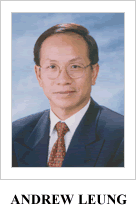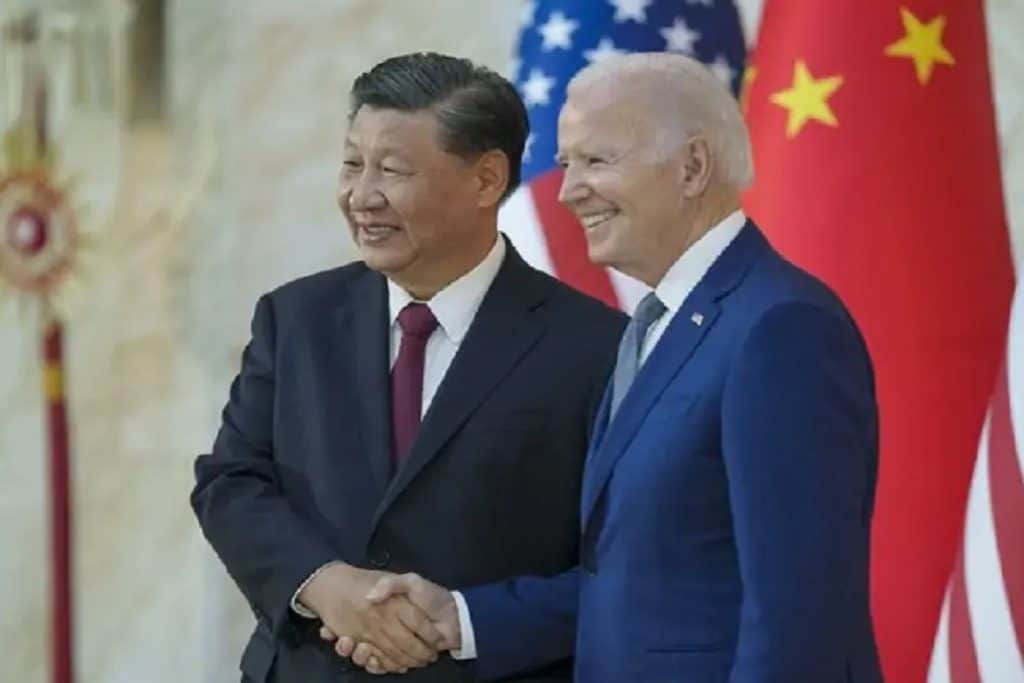By Andrew KP Leung (International and Independent China Strategist. Chairman and CEO, Andrew Leung International Consultants and Investments Limited)
 At his long-awaited face-to-face G20 meeting with President Xi Jinping, US President Joe Biden reaffirmed that notwithstanding vigorous competition, mutual conflict must be avoided. He cited the need for cooperation in a range of transnational challenges, including climate change, debt relief, health security and global food security.
At his long-awaited face-to-face G20 meeting with President Xi Jinping, US President Joe Biden reaffirmed that notwithstanding vigorous competition, mutual conflict must be avoided. He cited the need for cooperation in a range of transnational challenges, including climate change, debt relief, health security and global food security.
According to Chinese press reports, Biden doubled down on earlier pledges of non-confrontation to encompass “five no’s” and “four no-intents” — no seeking of regime change; no new Cold War; no ganging-up against China; no support for “Taiwan independence”; no support for “two Chinas”; no intention for conflict with China; no intention to decouple from China; no intention to hinder China’s economic development; and no intention to contain China.
However, these nine specific pledges do not appear in the relevant Washington readout. Rhetoric and diplomatic niceties aside, anti-China hypes, postures and measures are likely to persist, fueled by strong bipartisan consensus of a systemic “China threat” echoed by a “hegemonic coalition” of America’s closest Western allies.
I experienced this continuing anti-China blowback firsthand as a sponsored speaker during a recent international conference, From Crises to Crises: Towards a New World Order — MEDays 2022 — held in Tangier, Morocco from Nov 2 to 5. My three American co-panelists, all senior foreign policy advisers across the aisle, seemed to sing from the same robust anti-China hymn book.
However, these nine specific pledges do not appear in the relevant Washington readout. Rhetoric and diplomatic niceties aside, anti-China hypes, postures and measures are likely to persist, fueled by strong bipartisan consensus of a systemic “China threat” echoed by a “hegemonic coalition” of America’s closest Western allies.
I experienced this continuing anti-China blowback firsthand as a sponsored speaker during a recent international conference, From Crises to Crises: Towards a New World Order — MEDays 2022 — held in Tangier, Morocco from Nov 2 to 5. My three American co-panelists, all senior foreign policy advisers across the aisle, seemed to sing from the same robust anti-China hymn book.
I admitted there have been substantial US-China disagreements and concerns. But, building a bridge with a multitrack dialogue would be more productive than constructing fences and barriers.
How China responds to what President Xi calls a world “crossroads” amid “momentous changes unseen in a century” is embedded in his speeches at the 17th G20 summit in Bali (Nov 15-16) and at the APEC CEO summit in Bangkok (Nov 17), as well as in Premier Li Keqiang’s speech at the 25th China-ASEAN summit in Phnom Penh (Nov 11).
Xi outlined a clear vision for an “Asia-Pacific community with a shared future”. The region is “no one’s backyard”, nor should it become “an arena for big power contest”. It should embrace “openness and inclusiveness”, guided by “diversity and non-discrimination”, enabling “win-win co-operation” and “regional economic integration” free from any supply-chain disruption or dismantling.
Rejecting a “Cold War mentality” and “bloc confrontation”, Xi puts forth the idea of “common, comprehensive, cooperative and sustainable security” in a “Global Security Initiative” based on the United Nations Charter.
Specifically, Xi proposes building a “free trade area of the Asia Pacific”, including reform of the World Trade Organization, better alignment among the RCEP, the Comprehensive and Progressive Agreement for Trans-Pacific Partnership (CPTPP), and the Digital Economy Partnership Agreement.
For the world at large, Xi stresses that “drawing ideological lines or promoting group politics and bloc confrontation will only divide the world, and hinder global development and human progress”. He espouses a “Global Development Initiative”, under which more than 60 countries have joined a GDI Group of Friends.
China has established the “Global Development and South-South Cooperation Fund”, and will increase its funding for the “China-UN Peace and Development Fund”, in furtherance of the 2030 UN Agenda for Sustainable Development.
Xi refers to China’s submission of 15 projects to the “G20 Action for Strong and Inclusive Recovery”, working with G20 members on delivery.
Opposing the politicization of food and energy issues, the president points to China’s joint “Initiative of International Cooperation on Resilient and Stable Industrial and Supply Chains”, the “Global Clean Energy Cooperation Partnership”, and the “International Cooperation Initiative on Global Food Security in the G20”.
It’s clear that under President Xi’s leadership, China is proactive in taking on a much larger role to help build a better world in a “community of common destiny”, bound together by global challenges like climate change, pandemics, food and water security, terrorism and development bottlenecks. This should be welcome.
The pivotal question is whether the US, as the world’s leading superpower, can rise beyond “American exceptionalism” and a zero-sum, “win-lose” mindset.
For decades, the CPC has been consistently misunderstood, misjudged and misrepresented, if not thoroughly demonized, by the West, including some of the most respected authors, broadsheets, think tanks, journals and other media outlets.
The so-called “China threat” is reaching a crescendo, portraying US-China rivalry as a “life-or-death” contest between “democracy and autocracy”. This can be seen in tomes like “The Hundred-Year Marathon – China’s Secret Strategy to Replace America as the Great Global Superpower” (2015), The Return of Great Power Rivalry (2020), and Danger Zone – The Coming Conflict with China (2022). According to the Washington-based PEW Research Center, unfavorable views on China are reaching historic highs in many countries .
Rhetoric aside, Biden’s assurances at his three-hour-long meeting with Xi in Bali focused on guardrails rather than blue-sky thinking. The upcoming 2024 US presidential election and the election for Taiwan’s leader are also likely to politicize issues prone to upsetting the applecart, though not necessarily resulting in war. I’m, therefore, not over-optimistic about a lasting breakthrough in US-China relations.
However, according to OECD calculations, developing countries will account for nearly 60 percent of the world’s GDP on a purchasing-power parity basis by 2030. More are becoming confident enough to exert their national interests, individually or collectively, in defiance of hegemonic strong-arm tactics. OPEC’s recent refusal to expand oil production on US’ say-so is a case in point. More are likely to have China as the largest trading partner and to welcome a more inclusive world order not drawn on ideological lines, as espoused by Xi.
As the pandemic recedes and as its economy resumes running on all cylinders, China is likely to be on track to become the world’s largest economy in nominal terms, perhaps, by the early 2030s, and a strong, more advanced socialist economy by 2035 as planned, thanks to rising productivity (despite worsening demographics) driven by robotics and a digitized economy, technological innovation, high-speed-rail-connected super-charged urbanization and a rapidly-expanded middle-class of some 800 million by 2035.
If China could manage to bust the West’s allegations concerning trade, intellectual property and human rights “transgressions”, Xi’s panoply of concrete ideas, initiatives and proposals for a global community of common destiny are likely to gain faster traction and momentum, regaining for China its rightful place in the sun as the “China Dream” of national renaissance is eventually realized.
Andrew KP Leung is an international and independent China strategist; he was previously the director-general of social welfare and Hong Kong’s official chief representative for the United Kingdom, Eastern Europe, Russia, Norway and Switzerland.
The article has bee first published in CHINADAILY Hong Kong.
(The views expressed in this article belong only to the author and do not necessarily reflect the views of World Geostrategic Insights).







